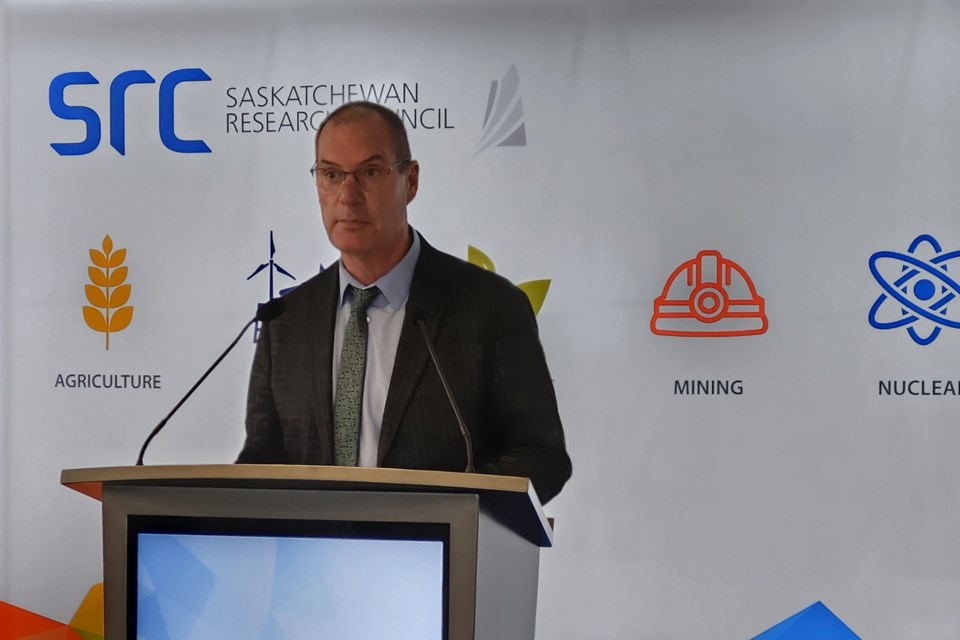SASKATOON — Saskatchewan Research Council (SRC) president and CEO Mike Crabtree says trade between Canada and the U.S. will remain strong, even under the incoming administration of President-elect Donald Trump, who will be sworn in on Jan. 20, 2025, and will have the support of a Republican majority in House and Senate.
Canada, the U.S. and Mexico are part of the North American Free Trade Agreement (NAFTA), which began in 1994 and aims to eliminate trade and investment barriers between the three countries, such as tariffs.
Crabtree said he is confident Saskatchewan will play a significant role in the Canada-U.S. trade partnership as demand increases for energy and agricultural products, including rare-earth minerals being processed at a facility in the province expected to be fully operational by summer.
“I think some of the answer to that is policy. But I think that from an SRC and industrial standpoint, the U.S. is still going to need the fuels, food, fertilizer and critical minerals that this province is capable of producing,” said Crabtree, adding that Saskatchewan’s resources are crucial to North America’s future, with the U.S. relying on what Canada has to offer.
“[The processing facility] is on schedule for the whole facility to come online mid-2025. We are already producing commercial quantities of rare-earth minerals. We have brought on one of the three major parts of the facility, and the other two will be engaged mid-next year,” he said.
Crabtree added that Saskatchewan would also play a significant role in the global transition to clean energy. The province is rich in essential minerals such as lithium, rare earths, and uranium – materials critical to renewable energy technology, including electric vehicle batteries and renewable energy infrastructure.
He is optimistic that the demand for rare earths and other minerals will drive continued investment and economic co-operation between Canada and the U.S. He believes, Saskatchewan’s growing domestic processing capacity will extend its role beyond raw material extraction by adding value to the supply chain before shipping materials to international markets.
“We can see that the energy transition will still go ahead. Saskatchewan will play a vital role in that energy transition by providing minerals and some midstream processing to add value to that. So, I think we will see a continued acceleration in interest in what Saskatchewan can provide,” said Crabtree.
“We have 23 out of the 31 critical minerals identified by the Canadian government right here in Saskatchewan, and we have them in quantities that are not only economically viable to mine but are strategically important to the future of North America’s energy infrastructure. The energy transition is moving forward, and Saskatchewan is ready to meet the demand for both raw and processed materials,” Crabtree added.


